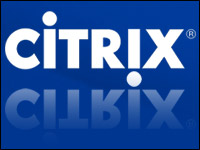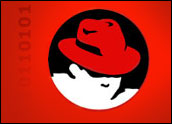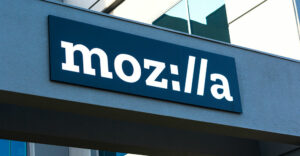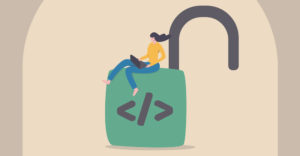
After four and a half years, the long, torturous and often twisted legal battle between SCO and Novell came to an end Friday when a federal district court judge put the kibosh on SCO’s claims that it owned copyrights to the Unix code and operating system (OS), upon which some of the code in Linux is based.
SCO’s stock dropped more than 70 percent in the days following the ruling. It traded at US$1.56 Friday and opened at $0.40 Tuesday morning.
Judge Dale Kimball, in a 102-page summary judgment, found that Novell retained its copyrights to the Unix OS.
“The court concludes that Novell is the owner of the Unix and UnixWare copyrights,” Kimball ruled.
‘Groundless Claims’
“In the spring of 2003, Novell set out to ensure that SCO’s groundless claims would not interfere with the development of Linux,” Joe LaSala, Novell senior vice president and general counsel, wrote on the company’s blog. “Today’s court ruling vindicates the position Novell has taken since the inception of the dispute with SCO, and it settles the issue of who owns the copyrights of Unix in Novell’s favor.
“The court’s ruling has cut the core of SCO’s case and as a result eliminates SCO’s threat to the Linux community based upon allegations of copyright infringement of Unix,” he continued. “We are extremely pleased with the outcome.”
For its part, SCO said, “the company is obviously disappointed with the ruling issued last Friday. … Although the district judge ruled in Novell’s favor on important issues, the case has not yet been fully vetted by the legal system and we continue to explore our options with respect to how we move forward from here.”
The judge also found that Novell could compel SCO to give up its claims against IBM. The rulings essentially gutted the foundation of SCO’s case against Novell just weeks before that trial, scheduled for Sept. 17, begins.
Linux Enemy No. 1?
SCO Group, a small software company based in Lindon, Utah, became a controversial company among Linux users when it launched a suit in 2003 against IBM in which it asserted that Big Blue violated its Unix contract. Specifically, the company alleged that IBM used code from Unix during the creation of the Linux OS that SCO said should have never been revealed. The software company seeks more than $5 billion in damages from IBM.
Novell became involved when the company claimed that it had never sold the copyright of Unix to Santa Cruz Operation, SCO’s predecessor, in the 1995 deal in which it sold certain rights to the company that eventually became SCO. In October 2003, Novell registered several key copyrights concerning the Unix code. Three months later, SCO filed a lawsuit against Novell alleging “slander of title” and aiming to prove that it owned the Unix copyrights before the IBM trial could move forward.
IBM’s success with Linux overshadowed Unix, leaving SCO to seek money from financial investors and demand software licenses from companies using the Linux OS.
SCO announced lawsuits against automaker DaimlerChrysler and AutoZone, an auto parts retailer, in March 2004. The DaimlerChrysler lawsuit was dismissed in December 2004, and the Autozone suit has been stayed pending the outcome of the Novell, RedHat and IBM suits. Not all major enterprises took the chance of facing a lawsuit, however. Microsoft, for instance, paid SCO US$12 million for two licenses. Sun Microsystems and Computer Associates also ponied up the cash for licenses.
Down, Not Out
SCO, however, apparently will continue to pursue aspects of the case for which Kimball ruled in the company’s favor or have yet to be decided.
In the company’s favor, the court found that the software maker does own the copyrights to technology it developed or derived after Novell transferred the assets in 1995, including subsequent versions of UnixWare. The judge also did not dismiss SCO’s assertions against Novell in regard to the non-compete provisions of the licensing agreement
In addition, the one thing the ruling did not say was whether Linux was a derivative of Unix or not, Michael Gartenberg, an analyst at JupiterResearch, who is not a lawyer, told LinuxInsider.
“That’s the one thing the ruling didn’t address, and so that is conceivably still out there,” he said. “Novell has not threatened to sue Linux users, but if the company has the Unix rights and at some point it was sold to another company, what would that mean?”
That, Gartenberg noted, is where things get interesting going forward. What would happen, for example, if Novell were purchased by Microsoft? While Novell has disavowed any further litigation, that stance could change.
“Novell certainly has said it is not planning to litigate. … Whether that would happen tomorrow and what will happen in the future — that of course remains to be seen,” he said.
SCO will need to decide if it wants to “throw good money after bad” and continue to pursue what remains of its lawsuits, Andrew Updegrove told LinuxInsider. Updegrove is a founding partner of the Gesmer Updegrove law firm and director of standards and strategy at the Linux Foundation.
“If I were SCO, I’d decide at this point they had fired a loss leader way beyond anything that could be considered rational,” he noted. “We’ll have to wait and see, but it seems like it would be poor business judgment to put another dollar into this puppy.”
The Impact
SCO’s claims, Updegrove stated, were a reach from the beginning.
“One doesn’t always end up with the right results,” he said, “but this time I think we not only did end up with the right result, and the case SCO was trying to make was a stretch.”
The judge’s ruling in the case could have a long-term impact in other cases in which copyright owners allege violations on the part of open source software makers and serve as a deterrent to future infringement lawsuits, Updegrove pointed out.
“One current corollary is the statement made by Microsoft a few months ago in Fortune magazine in which they claimed they had 235 patents that were infringed by Linux, by OpenOffice, by e-mail and ‘open source software,'” he said. “One thing this victory does do is, it will probably make Microsoft think twice and probably make people who had heard about Microsoft’s challenge be less concerned when they see the really monumental effort that companies large and small in the [open source] community put against anyone that messes with open source software.”
Friday’s ruling definitely proves that the Linux open source model works from the sense that it is defensible from an intellectual property standpoint and that the industry will come together to do it, Gary Chen, a Yankee Group analyst, told LinuxInsider. More businesses that may have been hesitant to deploy the open source software may do so now, he added.
“The majority of users I’ve seen were concerned about the legal stuff, but not enough to hold off buying or stop using Linux,” he explained. “For the small percentage that were, that barrier is now gone, and we’ll probably see a small uptick in adoption.
“You could say that this is a milestone in the maturation of open source software, and it is a milestone — not in the sense that there was a great victory to be won, because there was never a case to begin with. But it is a milestone in the sense that open source has weathered the kind of attack other revolutions have succumbed to. And it’s a tribute to the people who believed in open source that we are where we’re at today.”



















































